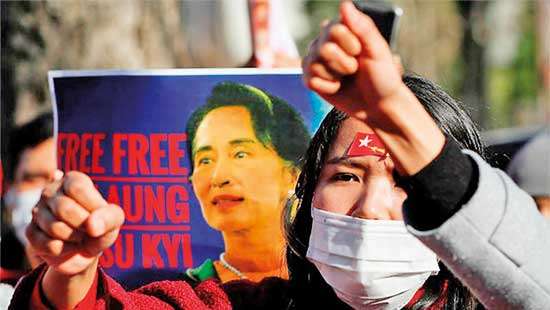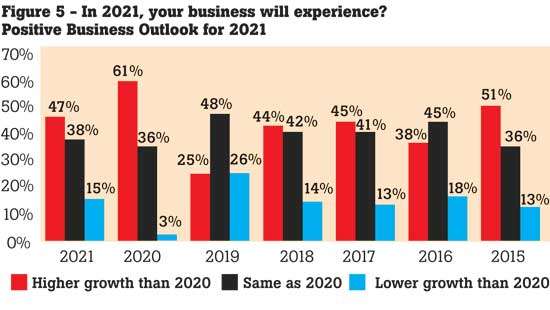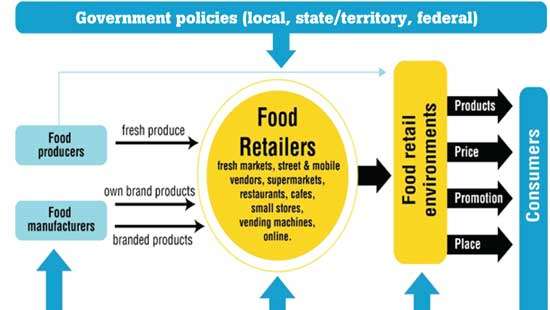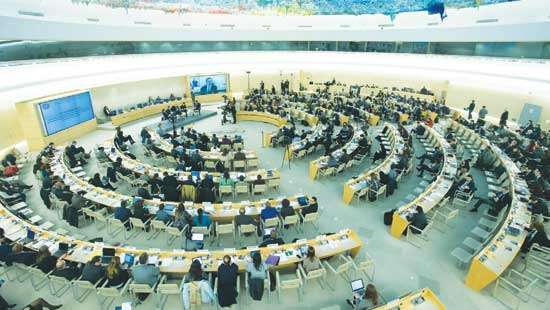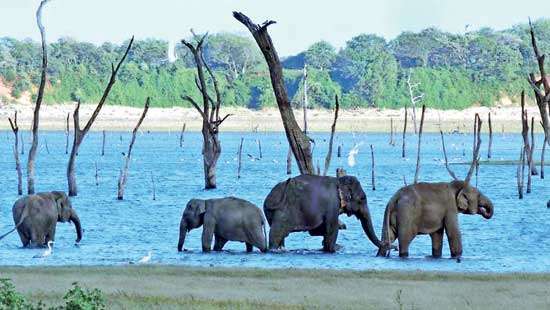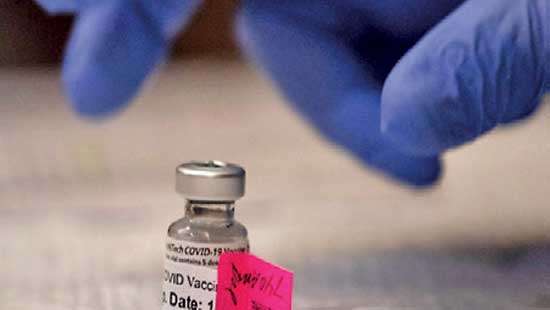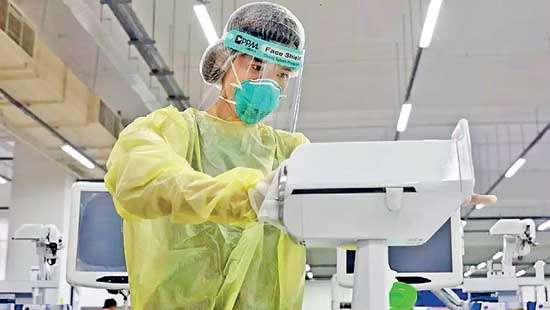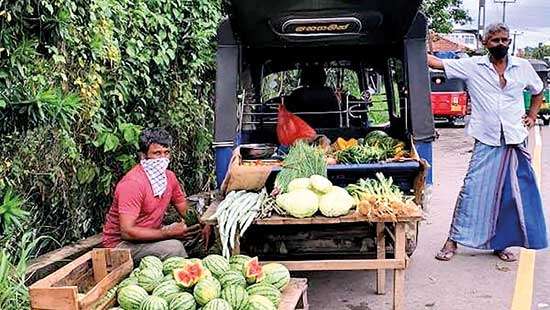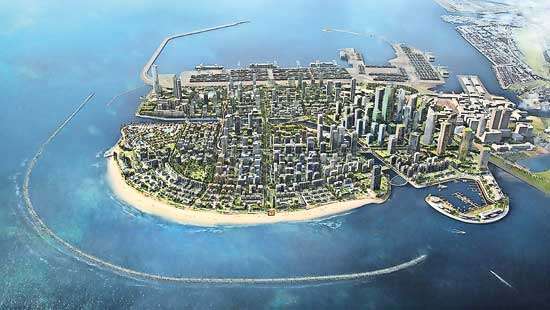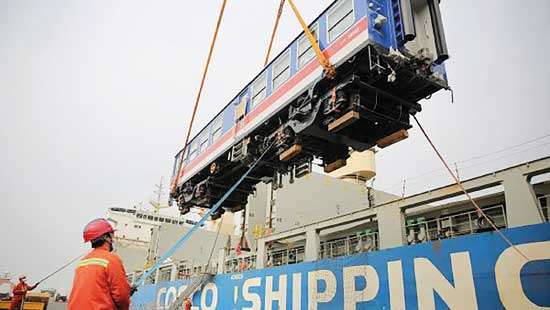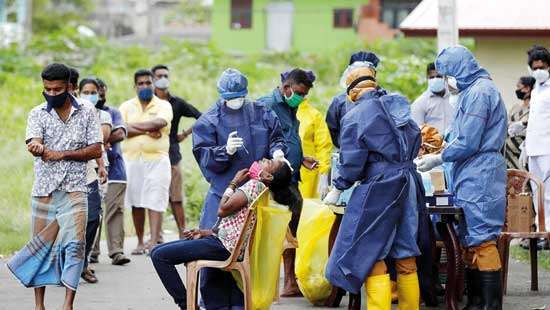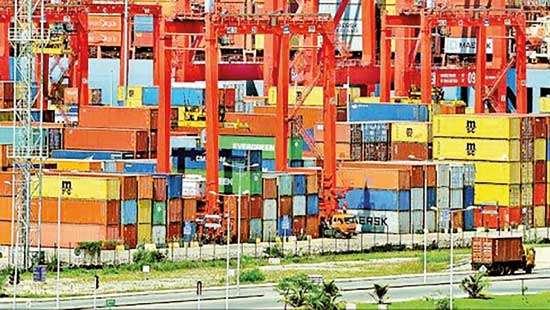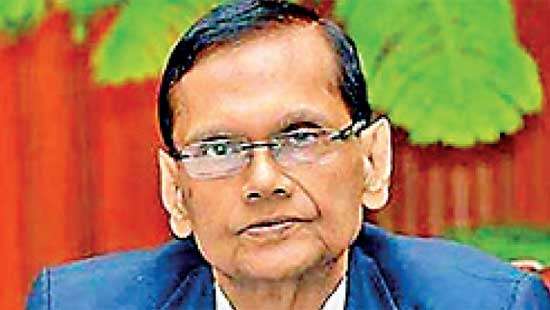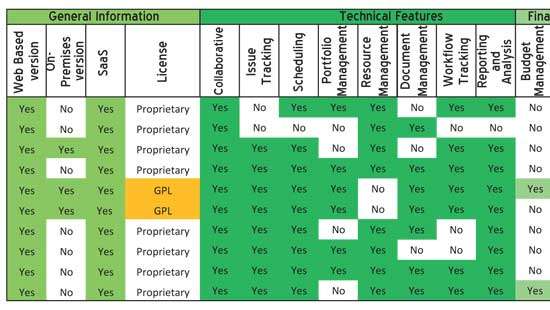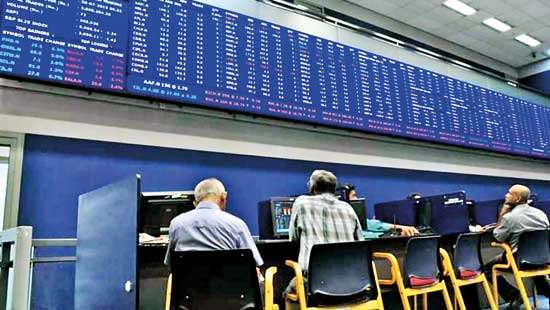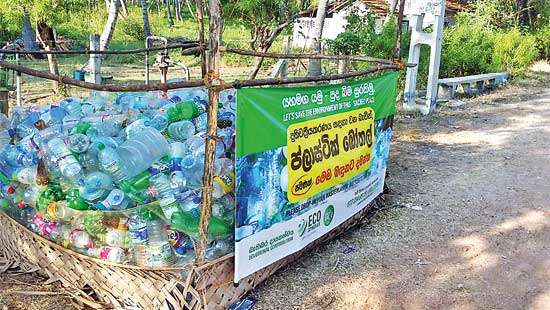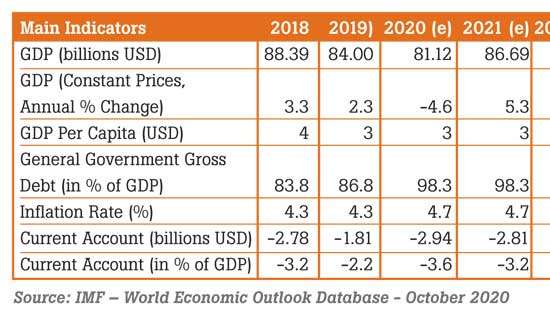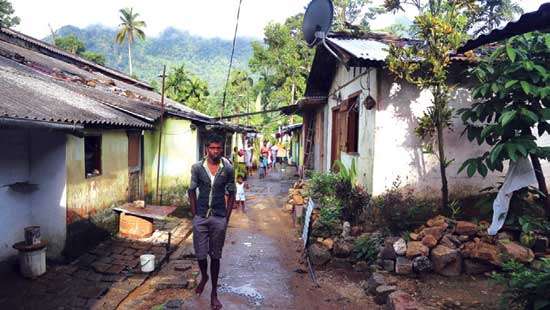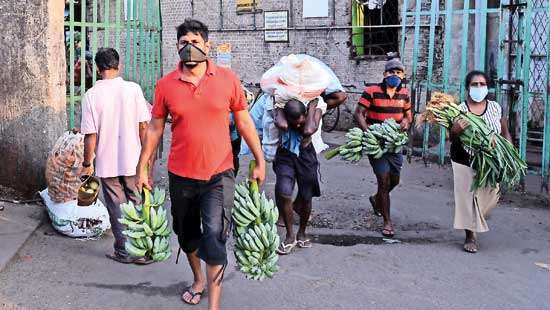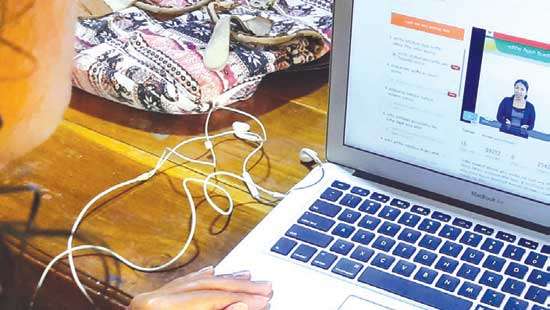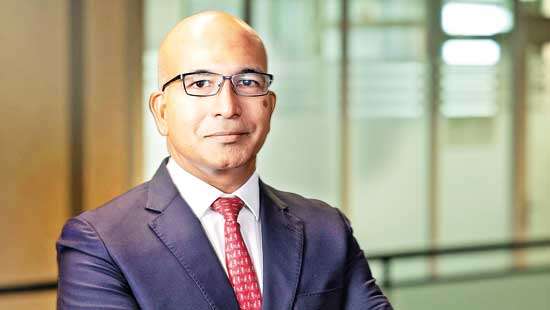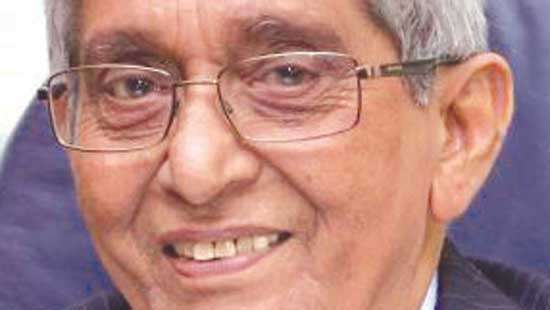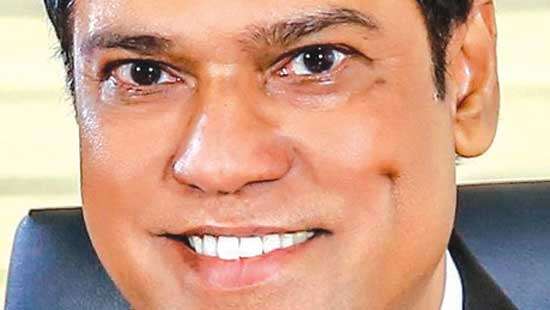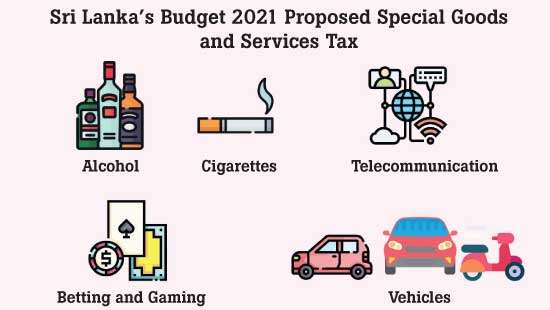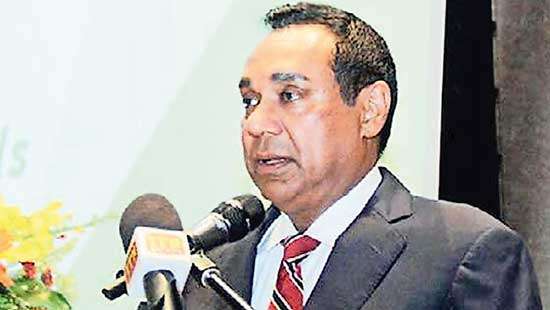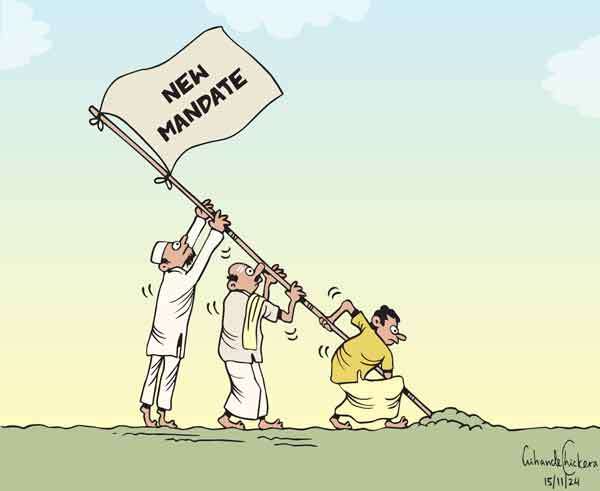Features
Oxford Economics highlights impacts of illicit trade to Sri Lankan economy
08 Feb 2021
 0
0
Growth and development come hand-in-hand with better governance and application of law and order. Ill-considered strategies result in leakages that will see us meandering in this constant state of a ‘developing nation’ – a poster-child of disappointment amongst nations with limitless promise.
MTI’s Business Review of 2020 and Outlook for 2021
04 Feb 2021
 0
0
For the 10th consecutive year, MTI Consulting (via their Corporate Finance practice), in partnership with Daily FT, Daily Mirror and Sunday Times, has concluded the MTI CEO Business Outlook Study, collectively outlining the Sri Lankan business community’s perception of the state of business in 2021.
An appetite for health: Regulating Sri Lanka’s food environments to fight NCDs
03 Feb 2021
 0
0
While no one is immune to contracting COVID-19, the World Health Organisation (WHO) has identified specific groups that are at higher risks of becoming seriously ill. One such group is those suffering from non-communicable diseases (NCDs), including lung and heart disease, diabetes and cancer.
Counselling Human Rights Council: A perspective by Pathfinder Foundation
03 Feb 2021
 0
0
As the 46th session of the UN Human Rights Council (HRC) looms large in about a month’s time, the debate on its controversial Resolution 30/1 of 2015, which the ‘Yahapalana’ government co-owned in an unprecedented and unwise move, has resumed with renewed vigour.
Sri Lanka can achieve a greener and more prosperous future
29 Jan 2021
 0
0
Farmers, hoteliers and homestay owners, fishers, producers of the famous Kanthale milk curd, Ayurveda healers, fruit growers, developers, safari jeep drivers, local dwellers—all derive their livelihoods from shared natural resources offered by the Hurulu-Kaudualla-Kanthale (HKK) landscape.
A race between vaccines and virus as recoveries diverge
29 Jan 2021
 0
0
In just three months since we released our last forecast in October, recorded COVID-19 deaths have doubled to over two million, as new waves have lifted infections past previous peaks in many countries. In these same three months, multiple vaccines have seen unexpectedly strong success and some countries have started ambitious vaccination drives.
We’re witnessing a global surge in innovation.This is how we sustain it
29 Jan 2021
 0
0
From a foot-operated handwashing machine invented by a nine-year old boy in Kenya, to a new “sky park” opened in Bangkok on an disused railway line that could serve as a model for greening abandoned spaces, to the roll-out of robots in health centres in Rwanda, the pandemic has unleashed an unprecedented wave of home-grown innovation.
Sri Lanka’s post-COVID-19 recovery: The need for inclusive economic growth
22 Jan 2021
 0
0
High levels of inequality impede sustainable growth and development of a country. Sri Lanka made impressive strides to reach an upper-middle-income country (UMIC) status in July 2019, only to slip back a year later. The COVID-19 crisis, amid growing inequities, is likely to make the task of regaining the UMIC status even harder.
Sri Lanka’s economy hemmed in by COVID-19 and geopolitical tensions
19 Jan 2021
 0
0
The unprecedented disruptions of COVID-19 are causing a geopolitical reset — and as the global order is redrawn, small emerging market economies like Sri Lanka are vulnerable to the fallout. Sri Lanka straddles vital shipping routes and is at the centre of diplomatic spats between China and the United States, who called on Sri Lanka to make ‘difficult but necessary choices’ over its growing economic and political ties to China.
Test, trace, treat – Putting SL’s pandemic management mantra into practice
19 Jan 2021
 0
0
Sri Lanka’s extensive network of public healthcare workers has been the underlying force behind the country’s pandemic response. This series of articles, beginning with the Puttalam district, aims to capture the ground realities of pandemic management, from the perspectives of public health workers around the country.
Post-COVID educational priorities for Sri Lanka
15 Jan 2021
 0
0
The global shock of the COVID-19 pandemic proves, once again, the old adage that ‘it takes a crisis’ and especially so in the world of education. From school leaders to students, educators and parents, are absorbing the lessons, rethinking past assumptions and considering what once seemed like unlikely scenarios.
Productive workplace: Manage not projects but everything
15 Jan 2021
 0
0
No 21st century organisation can survive without a central information system that integrates its work functions across the units and management layers. Some organisations do this with enterprise resource planning (ERP) software tools,
Focus more on developing tea, rubber, coconut & minor export crop plantation sector
05 Jan 2021
 0
0
According to generally accepted economic theories and their practical application, boosting economic growth has been seen as the best way to create job opportunities and raise living standards of people.
Secret of post-pandemic economic recovery is found in English alphabet
04 Jan 2021
 0
0
Thanks to the timely, swift, firm, systematic, coordinated approach and action taken by the government and more thanks to the absence of parliamentarians, the first phase of the COVID-19 pandemic was successfully brought under control in Sri Lanka.
Productive workplace: Build it up with right tools
04 Jan 2021
 0
0
A productive human being and one that’s not. What’s the difference? A productive carpenter is a one who has mastered his tools. A productive food delivery man is a one who has full control over his motorbike. A productive factory floor, in the 21st century, is a one fully computerised with appropriate tools. The same is applicable for any workplace. Productivity boosts with right application of correct tools.
CSE eyes introduction of a range of new products in 2021
30 Dec 2020
 1
1
In the backdrop of the Colombo Stock Exchange (CSE) celebrating its 35th year in operation earlier this month, its newly appointed Chairman Dumith Fernando sat with Mirror Business to discuss his views and the upcoming plans for the country’s capital market operator, while recalling the key challenges and developments during the year. The following are the excerpts from the interview:
Money printing to repay debt: Worshipping MMT is likely to magnify economic instability
28 Dec 2020
 0
0
The notion that a sovereign government can print money to repay its debt without any financial limit has gained increased popularity in recent times, particularly in the US, based on a new approach to macroeconomics, known as Modern Monetary Theory (MMT).
Digitalisation at core, People’s Bank eyes change in perception
28 Dec 2020
 0
0
As far as democratisation of banking services in Sri Lanka is concerned, People’s Bank remains atop. It was the bank that took commercial banking, which was primarily serving the wealthy and the financially sophisticated, to the masses.

Fonterra to proceed with sale process for Consumer businesses
22 Dec 2020
 0
0

BOI signs US$ 12.16mn deal with Celogen Lanka
22 Dec 2020
 0
0

Nissan to lay off thousands of workers as sales drop
22 Dec 2020
 0
0

EU Ambassador meets new BOI Chief to discuss economic ties
22 Dec 2020
 0
0

SLCERT warns WhatsApp users against sharing OTPs to prevent hacking
22 Dec 2020
 0
0

NPP heading for clear parliamentary majority
22 Dec 2020
 0
0



